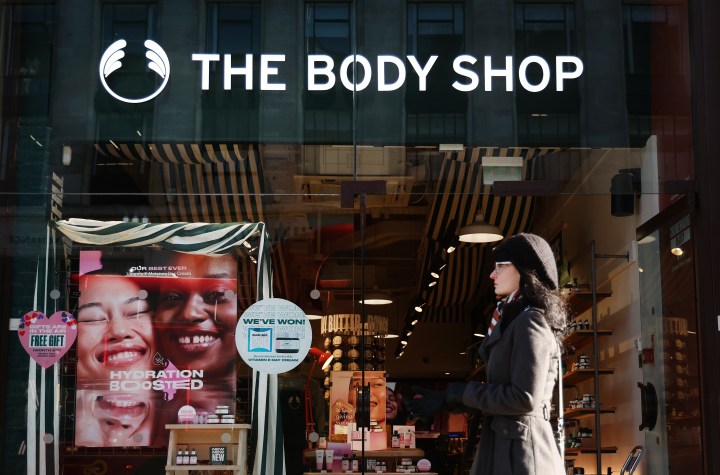END OF THE LINE
Body Shop goes bust in UK but it’s business as usual for SA consumers

The group, which pioneered ethical beauty, has changed hands three times in seven years.
Revolutionary in the 1980s, when ethically sourced, cruelty-free and natural ingredients were still a novelty in the beauty sector, The Body Shop has collapsed into administration in the UK, threatening over 2,000 jobs and about 200 store closures.
In South Africa, it’s business as usual.
Spokesperson for the Clicks Group, Graeme Lillie confirmed that The Body Shop in South Africa will not be affected by the issues affecting the UK operations of The Body Shop and that the business will continue to operate as normal here.
“Clicks Group has operated The Body Shop in South Africa under an exclusive long-term franchise agreement with The Body Shop International since 2001, and the contract was most recently extended in 2023.”
The “business as normal” situation for the SA business also covers the supply chain and product manufacturing, so nothing will change, he said.
Founded in Brighton, southern England, in 1976 by Anita Roddick, the Body Shop developed a cult following as a socially responsible company, which quickly grew to become one of the world’s most popular retailers, but a series of miscalculations, a tough trading environment and three changes of ownership in seven years have spelt the demise of the global brand.
L’Oréal acquired Body Shop in 2006 for £652-million, in a controversial deal that triggered a consumer backlash due to the French multinational’s animal testing practices. L’Oréal has publicly stated it stands for beauty with no animal testing, that it does not test any of its products or any of its ingredients on animals, and that it has been at the forefront of alternative testing methods for over 40 years.
Animal rights organisation, People for the Ethical Treatment of Animals, while lauding L’Oreal’s efforts to end testing on animals, says the group has not only refused to adopt a company-wide policy against tests on animals for both its ingredients and finished products, but that it also sells cosmetics in China, where animal testing is required by law.
Activists hailed the consumer boycott as a victory, after L’Oreal dumped The Body Shop in 2017 due to poor sales.
Its new owner, the Brazilian Natura & Co bought the company for £880-million: In November 2023, it sold Body Shop to German private equity firm Aurelius for a reported £207-million.
BBC reports that The Body Shop as a brand had “lost its soul” after Roddick sold it to L’Oreal. A year after the sale was completed, Roddick died of cancer.
While the group bounced between owners, it also lost traction among customers and stopped appealing to the youth market, who were now lured by the more provocative scents and colours of a new generation: Lush, L’Occitane, or whatever else the latest influencer is peddling on TikTok or Instagram. Clicks owns currently 57 Body Shop stores in SA and four in other African countries. DM
















 Become an Insider
Become an Insider
Comments - Please login in order to comment.